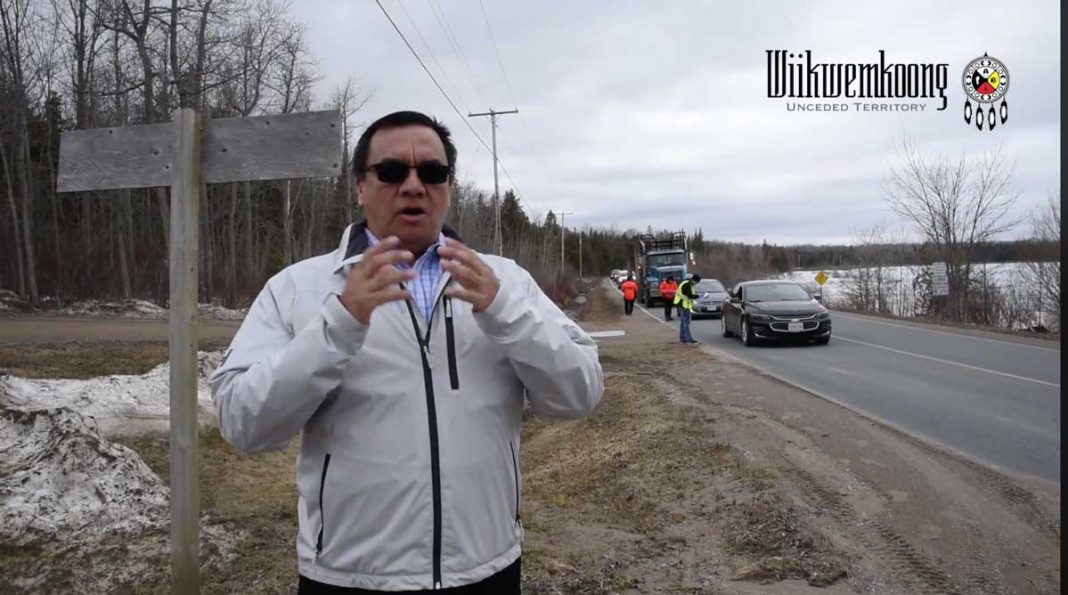Over $37 million committed to support outbreak planning, prevention and mitigation
TORONTO- As part of Ontario’s Action Plan: Response to COVID-19, the Ontario government is investing over $37 million to support outbreak planning, prevention and mitigation efforts to ensure the health and well-being of Indigenous people and communities — particularly those in remote and far-northern regions.
“Indigenous communities face unique challenges in planning for and tackling the COVID-19 outbreak,” said Greg Rickford, Minister of Indigenous Affairs. “We are working closely with Indigenous leaders and making critical investments to ensure Indigenous people and communities have the necessary tools and supports in place to stop the spread of COVID-19.”
The funding will respond to the unique needs of First Nations, Métis and Inuit people and families across the province. The total of $37.8 million includes:
- $16.4 million from the Ministry of Indigenous Affairs to provide emergency funds for food, household goods, critical supplies, transportation, and support and care, responsive services and supports for urban Indigenous people, self-isolation facilities in remote and northern communities, prevention and awareness efforts, and pandemic planning;
- $10 million from the Ministry of Children, Community and Social Services to support Indigenous communities and agencies in responding to the needs of vulnerable children, families and elders during the outbreak;
- $7.4 million from the Ministry of Municipal Affairs and Housing to help social service providers, charities and non-profits delivering critical housing services to Indigenous people living off-reserve; and
- $4 million from the Ministry of Transportation to ensure continued service to remote and northern airports, enabling essential goods and services to continue reaching isolated communities.
“We know the continuation of social services is critical to the unique needs of First Nations, Inuit, Métis and urban Indigenous communities. We’re committed to responding to those needs now and as they continue to develop,” said Todd Smith, Minister of Children, Community and Social Services.
In addition to this funding, the government is working with the Indigenous business community to assess how to address the impacts of COVID-19 on Indigenous businesses, economies and workers.
“We are acting quickly to support Indigenous people living off-reserve who are homeless or at risk of becoming homeless during this unprecedented time,” said Steve Clark, Minister of Municipal Affairs and Housing. “This funding will go straight to Indigenous service providers, who know best what the immediate needs are on the ground.”
The Ministry of Transportation (MTO) owns and operates 29 airports, with 26 serving remote First Nations communities. These airports provide a vital link to Indigenous communities, enabling shipments of essential supplies, such as food, fuel and water, and connecting essential services, including health care, education and social services. The ministry will work cooperatively with Indigenous communities wishing to enact their own measures related to the COVID-19 outbreak, including consideration of requests for the full or partial closures of MTO airports.
“We recognize these airports are lifelines to the communities they serve, many of which are isolated,” said Caroline Mulroney, Minister of Transportation. “Our investment will ensure that critical services and goods continue to be available to First Nations and northern communities.”
Quick Facts
- The province announced a $17 billion response package under Ontario’s Action Plan: Response to COVID-19.
- Ontario continues to work collaboratively with federal government representatives and Indigenous partners and leaders on a coordinated response to COVID-19 in First Nation, Métis and Inuit communities.



